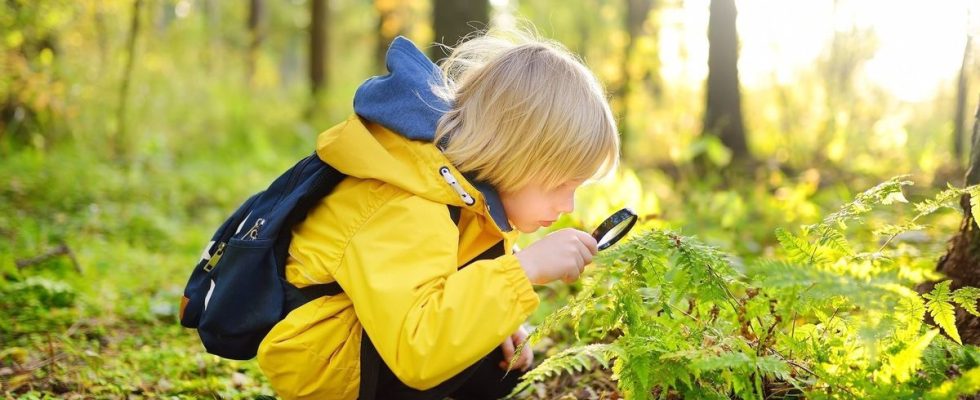Published on
Updated
Reading 2 min.
Marie Lanen
Head of parenting sections (baby, pregnancy, family), psychology and beauty

In our ultra-connected society, nature remains a refuge and an essential element for our well-being. Mélusine Martin, researcher at Sorbonne University specializing in environmental sociology, gives us 3 keys to (re)integrate nature into our daily lives (and that of our children).
Numerous scientific studies have focused on the link between health/well-being and contact with nature; particularly in a context where connected objects are omnipresent in our daily lives. How can we connect with nature and our children? Mélusine Martin, expert in environmental sociology and author of the book “Reconnectez-vous à la Nature” (Editions Larousse) gives us some valuable advice.
The earlier we start, the more intense the connection with nature.
According to our expert, contact with nature for children is essential because their brain evolves enormously (up to around 20 years old). So, “the earlier we start, the more intense the bond is“. Some studies show that children between 10 and 14 years old who have regular contact with nature have an increased sensitivity to environmental issues such as recycling waste, using the car less for travel and reducing their carbon footprint. Reflexes that become natural when you have been in regular contact with nature. In addition, it has been shown that these contacts can effectively reduce stress and anxiety.
Can we be in a “nature deficit”?
Yes according to our expert even if the famous “nature deficit syndrome” is debated among neuroscientists and is not recognized by the medical profession. Indeed, certain signs observed do not (yet) allow us to affirm that there are real symptoms of nature deficit. According to Mélusine Martin, anxiety, lack of sleep, stress, hyperactivity or even certain depressive symptoms can be indicative of a nature deficit.
Reconnecting with nature: 3 essential pillars
Good news according to the researcher, it is never too late to reconnect with nature. Likewise, it is entirely possible to establish a connection with our environment when we live in the city. “As soon as the baby is born, you can go for a walk a few minutes a day in a park” advises Mélusine Martin. “For there to be a communication link with nature, three pillars are essential:
- The cognitive pillar: you can read books, watch videos, documentaries, play games on the theme of the environment and nature;
- The emotional pillar: you can grow a plant, have a pet;
- The behavioral pillar: concrete actions are needed such as recycling or watering the plants.
“All these elements create a real and stable connection to the environment” adds the expert. A good way to offer fun activities to children, from a very young age while making them responsible.

